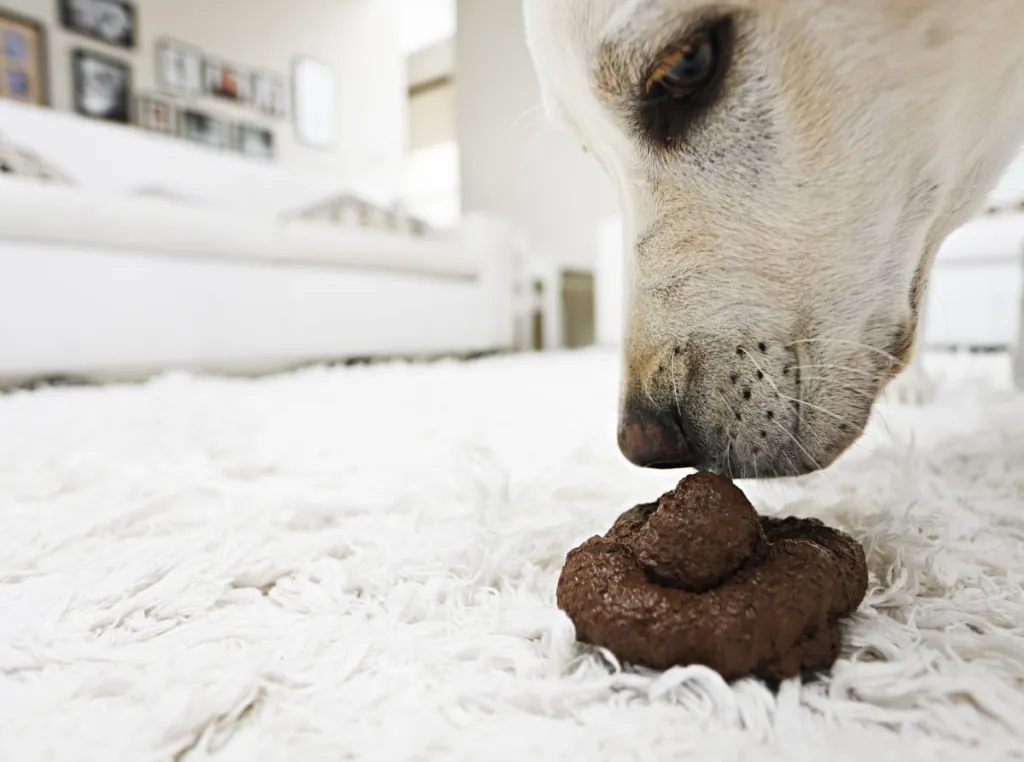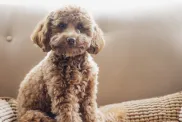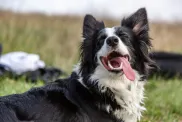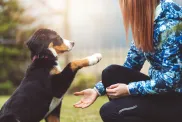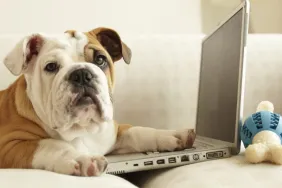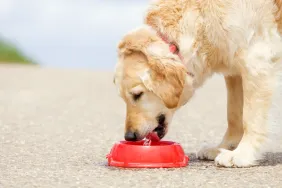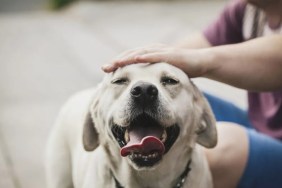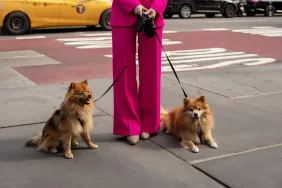It is a fact of pet parenthood that even your most beloved furry friend can develop some nasty habits that try your patience. There are a couple of behaviors that stand out as among the most worrisome and difficult to control. First, dogs eating poop or vomit. Second, “scooting,” or when dogs drag their bottom across the floor or ground. While these behaviors are unpleasant, your pup isn’t a lost cause if they engage in them. We’re going to help you address these behaviors and save you some embarrassment in the process!
Why dogs eat poop or vomit
Poop-eating actually has a scientific name — coprophagia — and is generally a natural behavior in dogs. (But that doesn’t mean it isn’t disgusting!)
Dogs are hard-wired to explore any and all potential food resources in their environment and, to them, poop is just another taste sensation. This is especially true of puppies, as feces is very similar in texture to the regurgitated food they got from their mom. While it can be tough to discourage dogs over 1 year old that have developed a poop-eating habit, most puppies will grow out of it.
Most dogs feel some urge to keep their territory clean, especially if they have been scolded for leaving a mess before. Eating poop can also be a way for canines to alleviate stress or garner attention from their parents.
Alternatively, a poor-quality diet or one that your dog is unable to digest easily might encourage them to give their poop a second round. In households where both dogs and cats are present, dogs may eat cat feces. Cat feces are even more nutritious than dog feces (gross, we know). This is because cat food is higher in protein than dog food. Also, cats are less efficient at digesting their food than dogs.
The consequences of eating poop
There are some cases when coprophagia indicates a greater health problem, such as pancreatic insufficiency or nutrient deficiencies. Generally, however, its biggest consequence is that humans find it revolting. Many pet parents worry their dog will contract infectious diseases from eating their own poop or that of their peers. The reality is that most healthy, vaccinated dogs are at low risk for picking up illnesses this way.
Snacking indiscriminately on neighborhood poop will increase a dog’s chances of picking up worms. A standard preventative treatment program will keep this from affecting their health. Fecal screening for intestinal parasites should be done twice a year at your vet’s office. Also, make sure your dog takes heartworm medication. It can help prevent some types of intestinal worms.
If your dog tends to eat cat poop, a valid concern is that they might end up swallowing a side of kitty litter. Kitty litter is harmful to dogs in large quantities, especially if the absorbent (clumping) litter expands in the gut. A dog with a belly full of kitty litter can become severely ill and might end up with vomiting or diarrhea. Plus, the consumed litter can be difficult to remove as it scatters throughout the digestive tract.
How to prevent poop eating
So how do you prevent coprophagia? Above all, remember that when your dog snacks on poop, they are behaving naturally. To them, this habit is rewarding and delicious. So, removing the temptation and rewarding your dog for preferred behaviors will always be your best training tools. Scoop your yard frequently. Keep Fido on a short leash in that poop-riddled park. And put the cat’s litter box out of reach. A covered cat box might be all you need if your dog is much larger than your cat. You can also put your cat box in a room with a step-over gate to keep your dog from entering.
Quite often, putting Fido on a high-protein, low-carbohydrate, and low-fat diet also will do the trick. Pet stores sell pet food additives that claim to make poop less palatable. However, many pet parents find that a teaspoon of canned spinach, pineapple, or a little meat tenderizer works equally well.
Never scold your dog for eating poop, as even negative attention can be seen as a reward. And if stress is the reason for your dog’s new habit, hopefully, an end to the stress will eliminate the habit.
Understanding scooting behavior
When Fido drops his haunches and scoots his bottom across the floor, it can be very embarrassing. While this behavior is sometimes a sign of worms, it may also be a hint that Fido’s anal sacks need to be expressed. A dog’s anal sacks, which are located at the base of the tail around the anus, get itchy and inflamed when they are full.
Although gross, this is probably the easiest of the nasty pet habits to break. Most dog groomers and veterinarians can take care of expressing Fido’s anal sacks.
